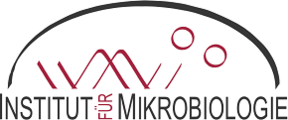
Clostridioides difficile is a leading cause of hospital-acquired diseases in developed countries. The interdisciplinary research group CDInfect comprising colleagues from institutions in Braunschweig (DSMZ, HZI, TU), Göttingen, Hannover (MHH) and Greifswald was formed to lay the scientific basis for the development of novel diagnostic tools and therapies for the treatment of C. difficile infection. Their combined and complementary expertise will allow this closely cooperating research consortium to address and answer central open questions regarding the molecular basis of the C. difficile infection process.
In our group we aim to elucidate the gene regulatory networks of Clostridioides difficile. Therefore, we establish and develop genetic and molecular tools. These include the ClosTron technology which is a directed mutagenesis with retargeted group II introns (Heap, et al., 2007). Furthermore, our work includes growth experiments under strict anaerobic conditions.
Our research focus is the role of the transcriptional regulator Fur in the infection process. Fur is known from other bacteria to regulate the iron homeostasis of the cell. The role of Fur in C. difficile remains unclear. Using system biology techniques we aim to elucidate the gene regulatory network of Fur in C. diffile.
Electronmicroscopic images of Clostridium difficile (Manfred Rohde (2007), Helmholtz Centre for Infection research, Braunschweig, Germany).
References:
Heap JT, Pennington OJ, Cartman ST, Carter GP & Minton NP (2007) The ClosTron: a universal gene knock-out system for the genus Clostridium. J Microbiol Methods 70: 452-464.